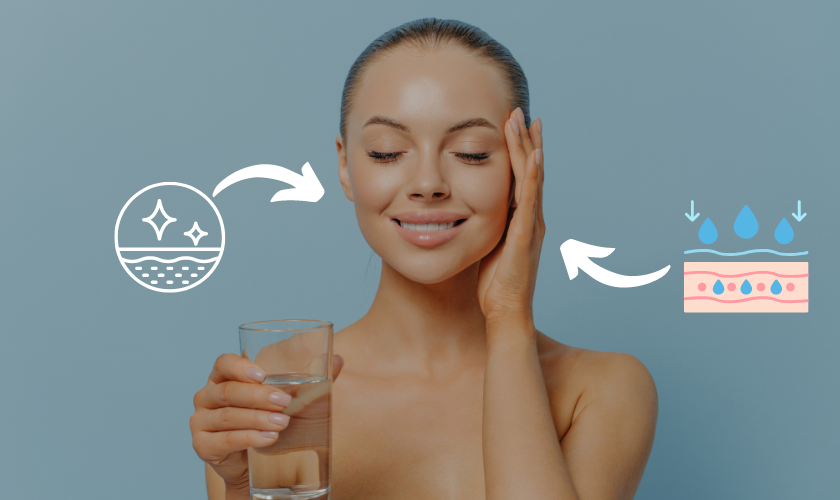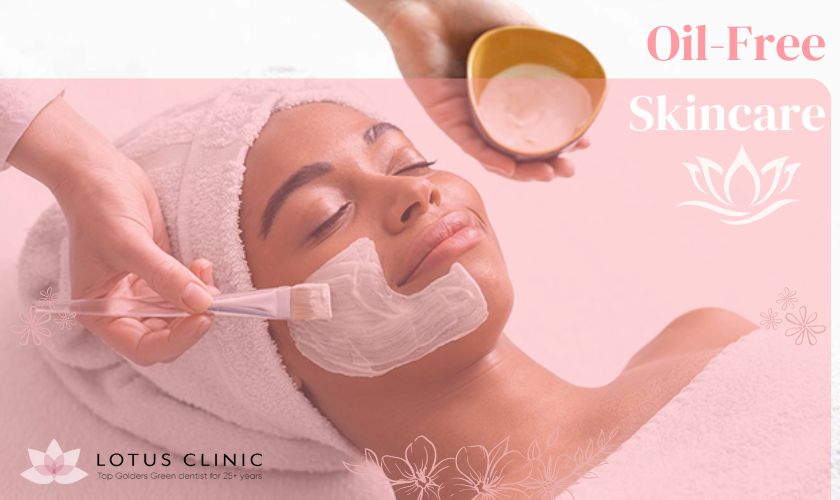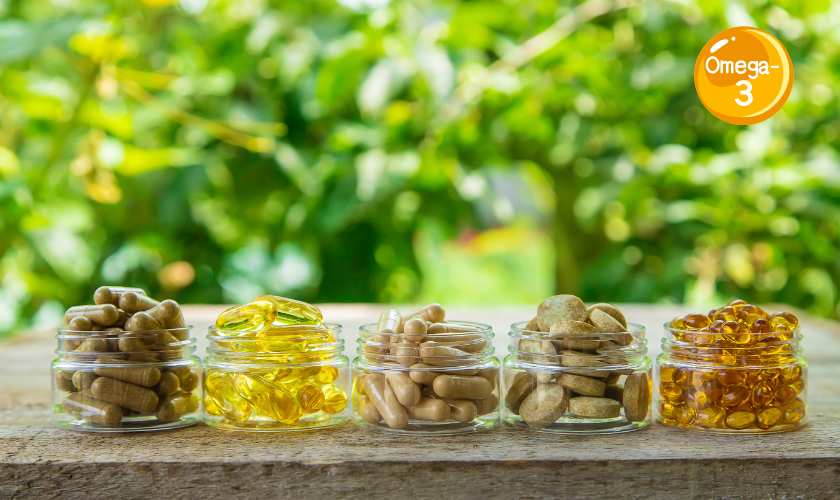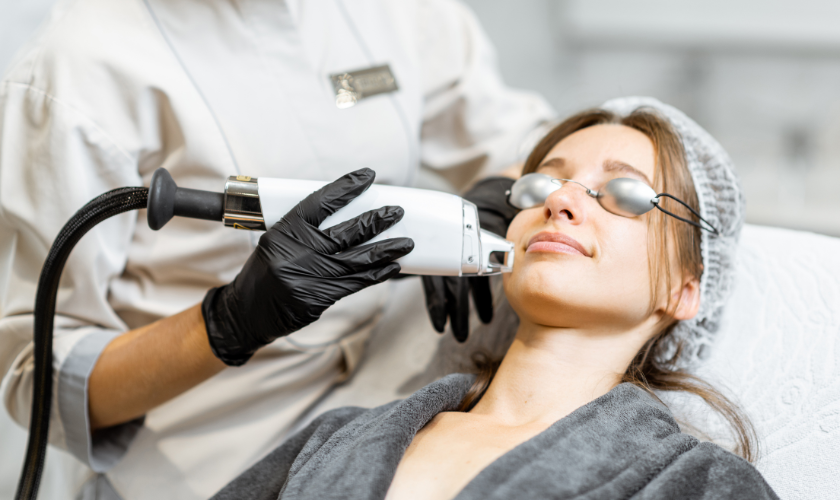943 Finchley Rd, London NW11 7PE
How Diet and Lifestyle Choices Affect Oily Skin: What You Need to Know?

Oily skin can feel like a constant battle, right?
You might think that just slathering on products is enough, but what if the real solution lies in your daily choices?
Yes, your diet and lifestyle play a huge role in how your skin behaves. It’s not just about what you put on your face; it’s about what you’re feeding your body and how you’re treating it.
Imagine this: you’re indulging in sugary snacks and skipping out on sleep, only to find your skin greasier by the day. This blog dives into the surprising ways your diet and lifestyle affect oily skin. We’ll explore how simple changes can make a big difference.
So, if you’re tired of dealing with excess shine and want to take control of your skin, keep reading. We’ll break down everything you need to know to manage that oily sheen and get your skin looking and feeling its best.
The Impact of Diet on Oily Skin

Sugary Foods and Refined Carbs
It’s tempting to indulge in sugary snacks and refined carbs, but these can trigger your skin’s oil production. When you consume high-glycemic foods, your blood sugar spikes, leading to an increase in insulin levels. This, in turn, stimulates your sebaceous glands, causing them to produce more oil.
Here’s why it matters:
- Blood Sugar Fluctuations: High-glycemic foods cause rapid blood sugar changes, which can lead to excess oil.
- Hormonal Changes: Increased insulin can stimulate hormones that boost oil production.
- Inflammation: Sugary foods can promote inflammation, worsening oily skin and acne.
What to Do:
- Opt for whole grains and fruits with low glycemic indexes.
- Reduce consumption of candies, pastries, and white bread.
Switching to a diet rich in fiber and low-glycemic foods can help regulate oil production and keep your skin clearer.
Fatty Acids and Skin Health
Your choice of fats can significantly affect the oiliness of your skin. Not all fats are created equal. While unhealthy trans fats and saturated fats can aggravate oiliness and acne, healthy fats can have a positive impact.
Here’s the scoop:
- Trans Fats and Saturated Fats: Found in fried foods and processed snacks, these fats can lead to increased inflammation and oiliness.
- Healthy Fats: Omega-3 and omega-6 fatty acids, found in fish, nuts, and seeds, help balance oil production and reduce inflammation.
What to Do:
- Include fatty fish like salmon and flaxseeds in your diet.
- Avoid excessive consumption of fried foods and processed snacks.
Incorporating healthy fats into your diet can help balance oil levels and improve your skin’s overall health.
Hydration and Its Effects on Oil Production
Drinking enough water is essential for maintaining healthy skin. Many people overlook hydration when addressing oily skin, but it plays a crucial role.

Why hydration matters:
- Regulation of Oil Production: Proper hydration helps your skin stay balanced and reduces the likelihood of overproduction of oil.
- Detoxification: Water aids in flushing out toxins that could contribute to excess oil and acne.
What to Do:
- Aim to drink at least 8 glasses of water a day.
- Avoid sugary and caffeinated beverages, which can lead to dehydration.
By staying hydrated, you help your skin maintain its natural balance and reduce excess oil.
The Role of Sleep and Stress in Oily Skin

Sleep and stress levels can have a surprising impact on your skin’s oiliness. Both can influence your body’s hormone levels, which in turn affect oil production.
How sleep and stress impact skin:
- Sleep: Lack of sleep can increase stress hormones like cortisol, leading to more oil production.
- Stress: High stress levels can also trigger hormonal changes that boost oil production and lead to acne.
What to Do:
- Aim for 7-9 hours of quality sleep each night.
- Incorporate stress-reducing activities such as exercise, meditation, or hobbies into your routine.
By managing stress and prioritising sleep, you can help regulate oil production and keep your skin healthier.
Exercise and Its Impact on Skin Oil Levels
Regular exercise has numerous benefits for your overall health, including the health of your skin. It’s not just about breaking a sweat; it’s about how exercise influences your skin’s oil levels.

How exercise helps:
- Increased Blood Flow: Exercise improves circulation, which helps deliver nutrients to your skin and remove toxins.
- Sweat and Cleansing: Sweating helps to flush out impurities from your skin, which can reduce oil buildup.
What to Do:
- Engage in at least 30 minutes of moderate exercise most days of the week.
- Always wash your face after a workout to remove sweat and prevent clogged pores.
Regular exercise can help maintain a healthy balance of oil production and improve your skin’s appearance.
The Impact of Skincare Products on Oily Skin
Choosing the right skincare products is essential in managing oily skin. Some products can exacerbate oiliness, while others can help control it.

Key considerations:
- Non-Comedogenic Products: Opt for products labeled as non-comedogenic, which means they won’t clog pores.
- Oil-Free Formulas: Look for moisturisers and cleansers that are oil-free to avoid adding extra oil to your skin.
What to Do:
- Use gentle, oil-free cleansers to avoid stripping your skin and triggering more oil production.
- Choose lightweight, non-comedogenic moisturisers to keep your skin hydrated without excess oil.
Selecting the right skincare products can help you manage oil levels and maintain clear, balanced skin.
Dietary Supplements and Their Effect on Oil Production
Certain dietary supplements can influence your skin’s oil production and overall health. Supplements can help fill gaps in your diet and support skin balance.

Useful supplements:
- Omega-3 Fatty Acids: These can help reduce inflammation and balance oil production.
- Zinc: Known for its anti-inflammatory properties, zinc can help manage oil levels and acne.
What to Do:
- Consider incorporating supplements like omega-3s and zinc into your routine if needed.
- Always consult with a healthcare provider before starting any new supplements.
Managing oily skin goes beyond just using the right products; your diet and lifestyle play crucial roles. By making informed choices, such as opting for low-glycemic foods, staying hydrated, and maintaining a balanced routine, you can help control oil production and improve your skin’s appearance. Combining these strategies with proper skincare can lead to a healthier complexion and reduced oiliness. Embrace these lifestyle changes to see a noticeable difference in your skin’s overall balance and clarity.







